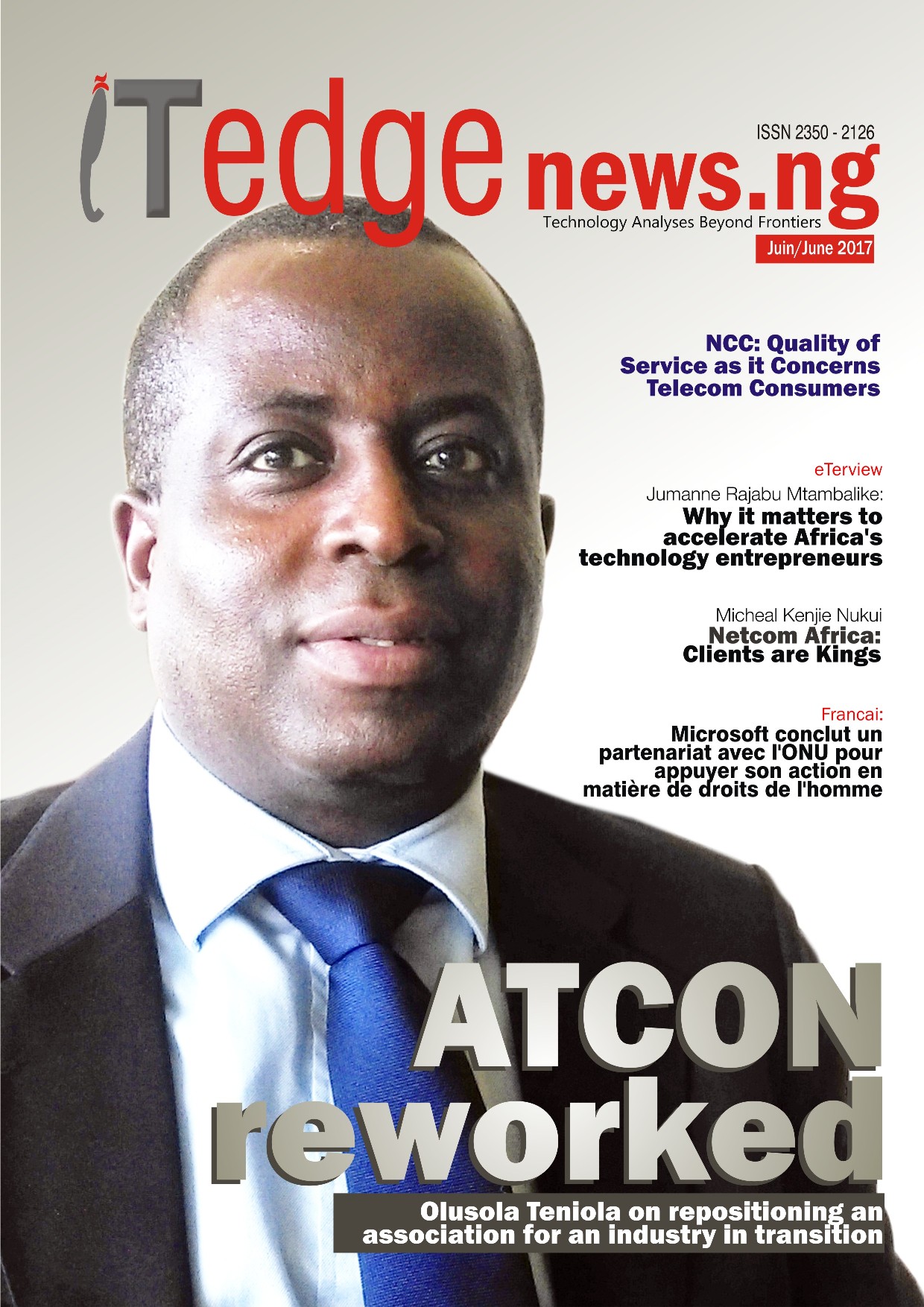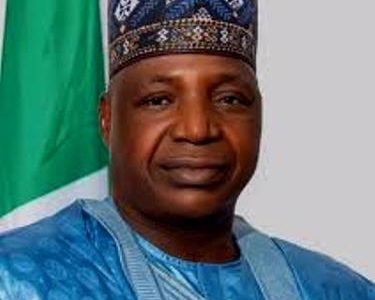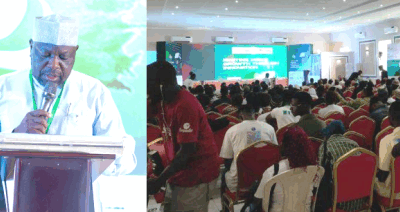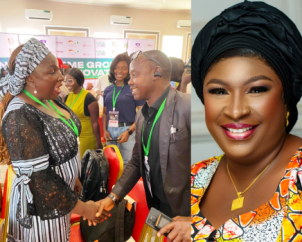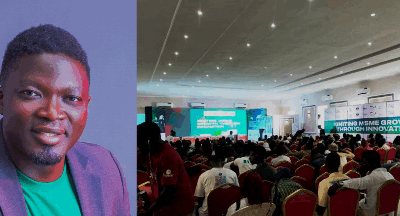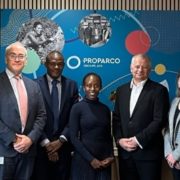When Mr. Olusola Teniola, President, Association of Telecoms Companies of Nigeria (ATCON) took the baton to lead the umbrella body for telecom companies a year ago, he had his mind set on engagements, advocacy and influence building. ATCON would engage all stakeholders including regulators, it would be an association advocating for progress and good health of the industry and it will be a body strong enough to positively influence policy makers in the sector’s best interest. When IT Edge News team: Anthony Nwosu, Aanuoluwa Omotosho and Oluwatobi Opusunju sat with him in Lagos on an assessment talk, Teniola speaks about the challenges of leadership, and how he and his NEC members have been able to set ATCON on a new course of expanding the value of the industry for everyone’s benefits.
Let us start with your company?
I’m now the Client Partner for a subsidiary of the Deutsche Telekom Group. So I am responsible for setting up their office in Nigeria and West Africa. So I am their man on the ground in West Africa. What we typically do is to offer telecoms advisory services to governments, in this case, the Ministry of Communications and other ministries. And also the regulatory bodies, that is NCC and the big telcos. I have been a Client Partner for nine months.
You’ve been in office for the past one year as president of the ATCON, how has it been like?
Yes, I think this time last year to be exact, I was fortunate to be elected as the sixth President of ATCON. My National Executive Council is now composed of about 16 members. I’m serving the first term. The first term is two years. It has been very engaging, very busy. I think that when I took over the presidency, there were a number of issues that were staring the industry in the face. One was the Communication Services Tax. And then there was also MTN’sunprecedented fine in billions of dollars. And then we had just received the new EVC of NCC, Prof. Danbatta. I have been trying to expand ATCON’s reach beyond the normal things we’ve done in the past. And one of them is that I had to give the keynote speech in Accra, two weeks after I became the president. I gave the keynote speech at the West African Telecoms IT Awards where we looked at exploring synergies across borders even as we sought to address both the challenges and opportunities at home. ATCON was willing to participate in all forms of recognition and to also share our views on broadband not just in Nigeria but in West Africa. We have also spent a lot of time trying to address the eight-point agenda of the NCC under Danbatta as they concern our members and the industry at large. We have tried to synthesize our own progressive six-point agenda with those of the regulator. Literally, we have had to build a stronger synergy with the regulator and foster a closer relationship with the EVC himself, to have a win-win relationship between regulator and operators. The TERF (Telecom Executives and Regulators Forum) had a different spin when we held it with the active support of the NCC and the EVC. That was seven months into last year. This year we’ve picked on pressing issues not just for our members, but other people and the industry at large. I wouldn’t like to blow any trumpet but I think we all worked as a team and NEC has supported me. By nature, my position in the industry gives me an advantage point because I have worked for large startups. We’ve been able to have an understanding with ALTON and it is really for the industry to speak with one voice so that we actively engage government and be able to influence policies as well as influence this dynamic and great industry. Our thrust has been engagements and seeking a new level of relationships or rapprochements with local and international partners that will bring immediate and long-term benefits to our members. For example, you will recall earlier this year, we had extensive talks with the Dubai World Trade Centre on the GITEX Expo to seek ways of expanding industry values to our members and the country at large.
You said you have a six-point agenda; can you grade yourself on how far you have gone?
If I grade myself, I always give myself a 100 percent. I like feedback. Feedback will suggest that we have done 70% of what we set out for. Remember this is an agenda that should spend two years. So that’s a great achievement. Now that I am in my second year of my first tenure, I want to establish a stronger secretariat and God willing have our own building. But I’m very happy with the progress we’ve made so far. We need to remain relevant and have an effective advocacy that is able to engage government from outside government. I’m happy with our progress.
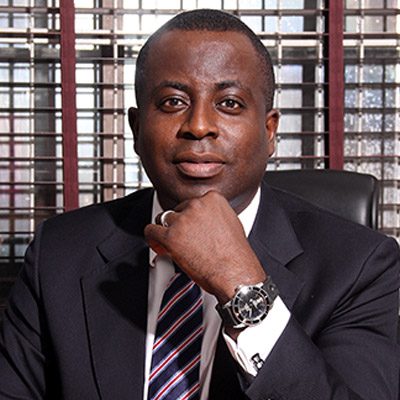
Our thrust has been engagements and seeking new level of relationships, ATCON’s president Teniola
In terms of effective advocacy, has government handled the MTN issue very well considering public perception that the fine was imposed to raise fund for a Nigerian government that is broke?
Well, I’m going to take it from two angles. The first is that there was a change of leadership at NCC. Some of the issues that were at the table of the new leadership were issues that were overhanging in the industry. So the regulator you have to give it to them, they were very brave to take a very difficult decision. I can assure you right now that we have a regulatory body that is serious, they are very resolute that our members stick to the law, not break the laws with impunity. I think the government would like to provide the best working environment and ATCON members on their own deserve such environment to manage their businesses successfully. So you have a regulator who wants to ensure that laws are obeyed and operators who deserve a stronger understanding and empathy considering the tough business environment. On the flip side also, you have an industry that is dynamic and constantly throwing up new opportunities. At the moment, we have an opportunity to drive the industry to become data-centric. And I think it requires a different mindset both from the regulator and operators. The more I speak with the government, the more I speak to the wider stakeholders. We have in our mindset, how we can achieve this and those mindsets need to be brought together so that we can overcome some of the challenges in the industry.
Should OTT be charged? And why are operators not selling bundles?
The problem we have here in Nigeria like in many other emerging markets is the lack of infrastructure. Unlike the developed markets, we lack infrastructure. If I were to tell you that to build a true broadband data network, we need a 100 billion dollars most of you won’t believe it. The government has no money, the private sector has it. Most Nigerians in the oil and gas industry don’t invest in ICT. They rather take the money and invest it in London, New York, and Dubai. Banks are non-committal, so where is the money going to come from? OTT players are not investing in building so who would? My members are not confused instead they want to see how they can adapt their businesses to remain relevant. Bundling is just a technique to acquire more market share. The issue is that what are you really getting from this bundle and what happens when you don’t use it. It’s not that we don’t understand some of the conceptual issues in the market or extant policy, but our biggest failure is the execution of policies and maintaining existing infrastructures.
“It is not about resources anymore, it is about technology….Any government or society that wants to be part of the future must start now….Nigeria is so much dependent on oil that it has blinded us from the future. Countries like Rwanda, Kenya and other reasonable African countries are changing their narratives from a natural resource economy to a knowhow economy.”
Innovation is low in Nigeria. People are complaining that the venture capitalists (VCs) are Shylocks in nature. Is this trend not killing innovation?
You don’t wait for government’s innovation. Nigerian youths must find ways to innovate, when they do this, then funding must come. Waiting for funding without innovation, it will be hard. Around the world, the VCs will always invest but before they do that, they must trust you. People think that venture capitalists are charities. It is unfortunate that we don’t have systems in place to help the younger ones unlike overseas, where people have credit cards and their credit rating will assist them in getting funds. Here, it is a different case. One thing I’ve learned is that the VCs will invest in firms that they trust and believe in. VC is rarely done in Nigeria, it is only done when you are expanding your operation, otherwise, you go to the banks. Unfortunately, in Nigeria, most banks don’t understand ICT, and there are high-interest rates and some funny collateral usually required.
What are the particular challenges that you face running such an association like ATCON?
Well, there are no big challenges because I have been with ATCON for seven years now as vice president. The main challenge is that we have to be diplomatic to a degree as you don’t want to be seen as aggressive and confrontational. You have to be a visionary leader to impact and influence the stakeholders. These are few of the challenges and this poses its own limitations.
Lately, the world witnessed a series of cyber-attacks such as the ‘Wanna cry ransomware, how is ATCON sensitizing stakeholders on this?
The ransomware is one of many that have occurred over the years. As far as we have the internet, we will always have some rogue software that will be attacking us. This is always going to be with us. We are creating awareness and we are highlighting and making this publicly known. We have it as a duty to educate the public on the preventive measures to take. There will always be an insider and we must change our behaviour on how to safeguard our data. Our members are up to date and we are updating them.
“Around the world, the VCs will always invest but before they do that, they must trust you….It is unfortunate that we don’t have systems in place to help the younger ones unlike overseas, where people have credit cards and their credit rating will assist them in getting funds.”
Nigeria isn’t doing a much to diversify outside of crude oil export, do you see any change towards diversifying to ICT?
To be a mono-product economy is a dangerous thing. We have depended on oil for so long and this is affecting us today. Many developed countries today didn’t rely on natural resources. In the future, it is not about resources anymore, it is about technology, machine learning, Artificial Intelligence (AI) and others. Any government or society that wants to be part of the future must start now. This is where we have missed it and we are missing it. Nigeria is so much dependent on oil that it has blinded us from the future. Countries like Rwanda, Kenya, and other reasonable African countries are changing their narratives from a natural resource economy to a know-how economy. What if the oil dips down to $30 per barrel or dries up? Does it mean that our whole existence is all about oil? Oil is just an enabler; I think we have to push for direction. We haven’t warned government enough on the need to face diversification headlong. We must change this myopic mindset on oil or nothing. This is not the way to run an economy. One thing we are certain about is that we are going to the fourth industrial revolution, we have missed the third. It is for the youths to talk about this now. If not, your counterparts will be controlling you in the future. This is the time to speak up.

